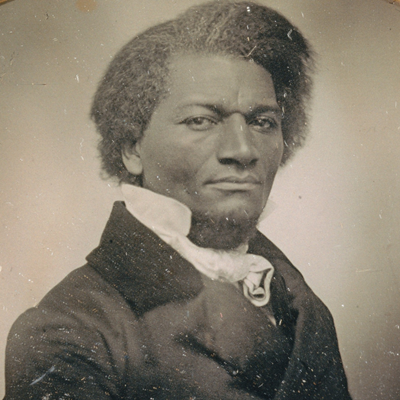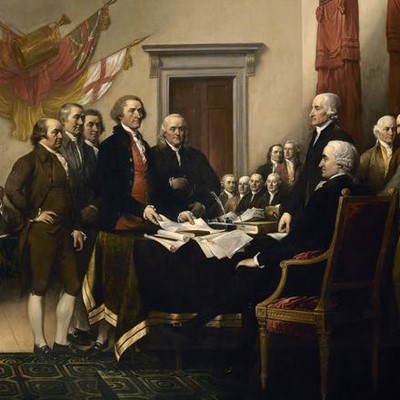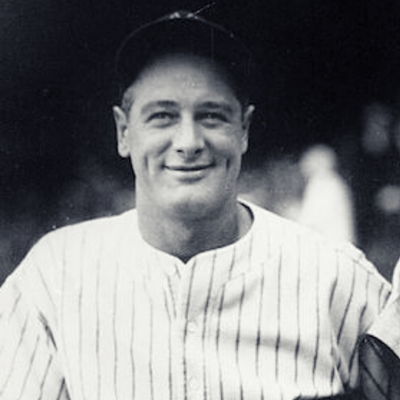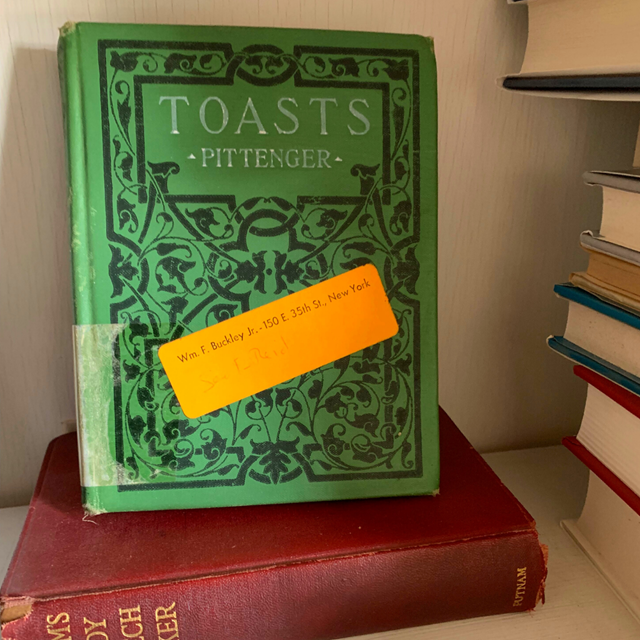
"What more is needed, unless it be that serene self-confidence which enables a speaker to say even foolish and absurd things."
– William Pittenger on the value of a few well-chosen words in "Toasts"
By JENNY MAXWELL
On a shelf in The Buckley School library, you'll find a curious little book. On the cover is simply Toasts, but when you open it to the title page it promises:
How to respond to toasts or other public addresses and always say the right thing in the right way
After years of admiring the cover and title page, I thought I'd ease through this 1895 edition ever so gently and learn a Christmas toast or two. I ended up learning a lot of other things (and when you don't get a Christmas card from me, it's because I fell down the Google rabbit hole).
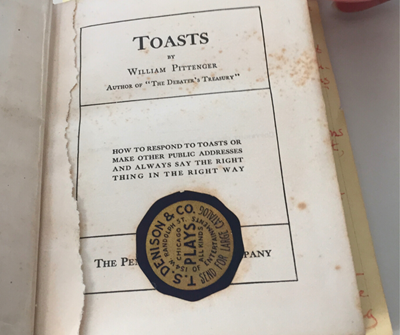 A promise that might not have seemed all that bold to a man who stole a locomotive.
A promise that might not have seemed all that bold to a man who stole a locomotive.
Turns out the author, William Pittenger, was quite the interesting guy. As a Union soldier during the Civil War, he was part of the raid to steal a train in Marietta, Georgia. The conductor hopped on another locomotive and chased them 90 miles, then captured Pittenger and his fellow soldiers. Pittenger spent a year as a prisoner of war and started writing the story that became The Great Locomotive Chase.
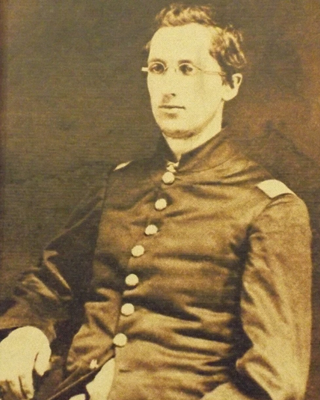 Pittenger the Union army soldier became Pittenger the oratory expert.
Pittenger the Union army soldier became Pittenger the oratory expert.
After the war ended, Pittenger became a minster and an expert in oratory. He wrote several books about public speaking including this modest volume with the whopper of a promise: to always say the right thing in the right way.
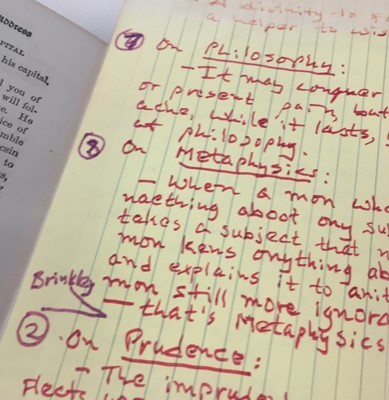 A mysterious note tucked inside our book: Was its former owner preparing a toast to Brinkley?
A mysterious note tucked inside our book: Was its former owner preparing a toast to Brinkley?
In the introduction to Toasts, Pittenger recommends you search the book's pages for the event, create a little plan, and commit a few eloquent lines to memory. Here's an excerpt:
If he is to offer a toast, he examines the list furnished in this volume, finding one perhaps that pleases him, or one is suggested which is better adapted to his purpose than any in the book, and he wonders at the stupidity of the author in omitting it…. Thus gradually and unconsciously he has prepared himself for the part he is to perform.
Good-humor and brevity, an outline and a story—what more is needed, unless it be that serene self-confidence which enables a speaker to say even foolish and absurd things, with the assurance that all goes down at a public dinner?
As for those Christmas toasts, here are a few:
To the cold weather without and the warm hearts within
Christmas gifts—may they bless the giver not less than the receiver
To St. Nicholas—the only saint Protestants worship
To a merry day that leaves no heart-ache
And my favorite:
To a Good Christmas—may sleighing, gifts, and feasting crowd out all gambling and drunkenness.
Learn more:
If you'd like to read more from this book, you can find it online at The Guttenberg Project.
For a few tips on the etiquette of toasting, we've got you covered here.
For a list of funny and potentially embarrassing toasts, check out these submitted by the readers of Atlas Obscura.

